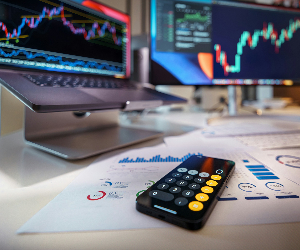Discover the best yen wallets in our comprehensive ranking, perfect for international clients. These wallets offer outstanding features in the secure and efficient management of yen, ensuring smooth financial transactions for users worldwide.
RANKING: TOP TRADING APPS FOR THE DOW JONES INDEX
Indices are financial instruments designed to track the overall price performance of a set of stocks. An index uses a statistical measure of change to effectively reflect the overall performance of the defined stocks. Indices can be excellent for trading as they offer exposure to broad market movements and built-in diversification to reduce risks. Discover which applications top the ranks for trading the Dow Jones Industrial Average, a significant U.S. stock market index listed on the New York Stock Exchange and NASDAQ. Master the U.S. market with these options. Many of these platforms are also used by market professionals —including asset managers and registered institutional investors— looking for effective tools to apply investment strategies. This ranking presents the three best options available today in the country.

Ranking Methodology
This ranking of the best trading apps for the Dow Jones Industrial Average is based on a comprehensive analysis focusing on several key factors:
User Interface: Ease of use and intuitive design.
Trading Tools: Availability of advanced trading tools and resources.
Market Access: Direct access to Dow Jones market data and assets.
Costs and Fees: Transparency and competitiveness of trading fees.
Customer Service: Quality and availability of customer service.
Security: Strength of security measures to protect user data and funds.
User Reviews: Analysis of user feedback and app ratings.
Regulatory Compliance: Adherence to financial regulations and standards.
Account Opening for Residents: Several foreign trading platforms do not enable accounts for users in Mexico. Therefore, it is most important to ensure they accept Mexican residents. These options allow accounts to be opened with your INE and a simple proof, like the CFE or Telmex receipt, making the process accessible for any Mexican.
Factors Influencing Index Prices
Index prices are determined by the changes in the prices of their components. This means there is a strong correlation between the performance of the index and the prices of the major stocks that comprise it. Some of the factors that can influence index prices include:
Market Sentiment: The structure of indices allows them to serve as benchmarks for the stock market. Because they are composed of multiple stocks, they tend to reflect the overall market sentiment. For example, if the market is generally bullish, the corresponding index prices are expected to rise. Some factors that can influence market sentiment include economic factors such as wages and inflation, company news reports, central bank announcements, and interest rates.
Corporate News: News about companies with a significant weighting within an index can influence its overall direction in prices. Some of the most impactful corporate news includes earnings reports, forecasts and profit warnings, mergers and acquisitions, and leadership changes.
Index Rebalancing: Most indices are periodically rebalanced. This rebalancing may include the inclusion of new companies in the index and the removal of others. This rebalancing can also include an increase or decrease in the weightings of certain components within the index. The period from the pre-announcement to the effective date of rebalancing and the period after rebalancing can be very volatile for index prices, depending on expected events.
Sector Performance: The performance of a sector can influence the overall performance of an index. For example, technology has a sector weight of approximately 27% in the S&P 500. If the sector faces tough economic conditions and tech stock prices fall sharply, this will also trigger price losses in the S&P 500.
Commodity Prices: Commodities support many economic activities of various companies. Many indices include stocks of commodity companies. For example, the UK's FTSE 100 has about 13% of its weight in energy. Therefore, changes in the commodity market can influence the overall index price.
Political Events: As broad benchmarks, indices are vulnerable to major political events such as elections, trade wars, or conflicts between countries. For example, the UK's Brexit event triggered volatility in the UK's index market.
YOU MAY ALSO BE INTERESTED




